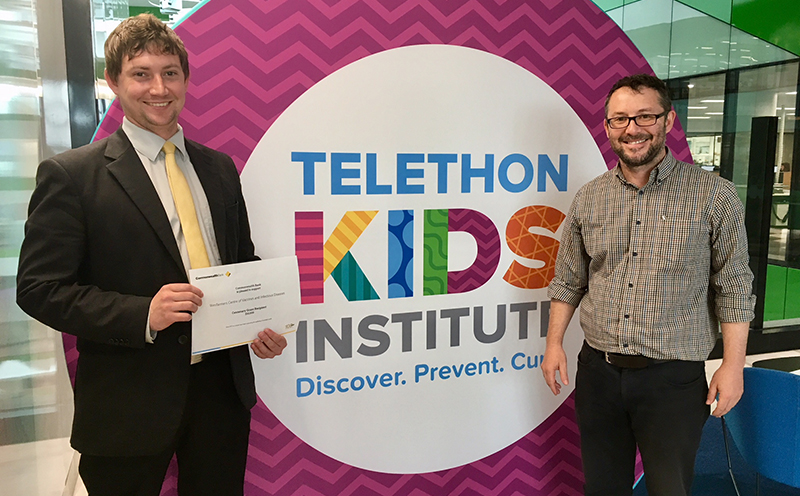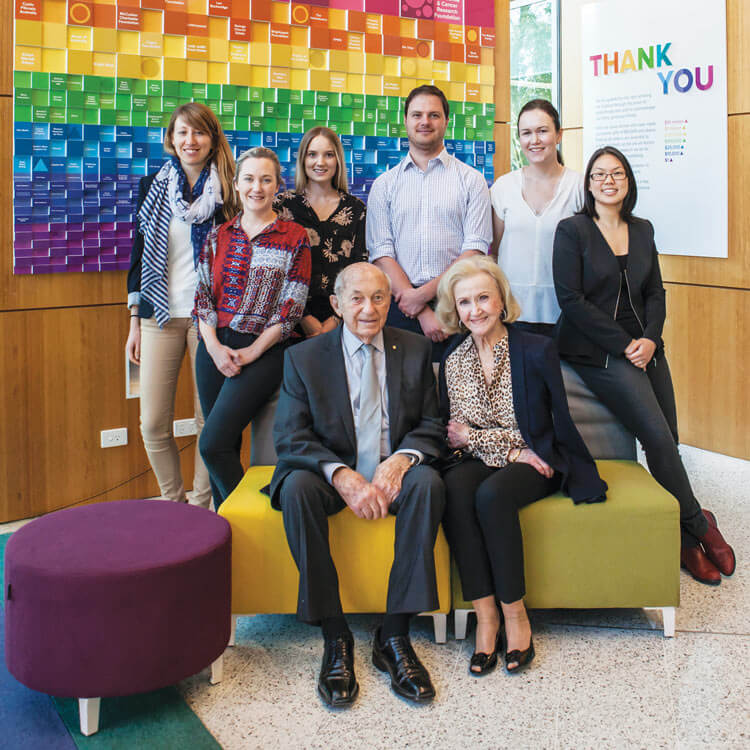Search

A close call with meningococcal disease ignited a passion in Iain Buchan to do whatever he can to keep WA children safe from life-threatening infectious diseases.
Research
Maternal concentrations of perfluoroalkyl sulfonates and alterations in white matter microstructure in the developing brains of young childrenMaternal exposure to per- and polyfluoroalkyl substances (PFAS) has been linked to child neurodevelopmental difficulties. Neuroimaging research has linked these neurodevelopmental difficulties to white matter microstructure alterations, but the effects of PFAS on children's white matter microstructure remains unclear.
Research
Proposed Core Outcomes After Neonatal Sepsis: A Consensus StatementSepsis is one of the leading causes of neonatal mortality. There is heterogeneity in the outcomes measured and reported in studies of neonatal sepsis. To address this challenge, a core outcome set (COS) for research on neonatal sepsis was needed.
Research
Perinatal psychiatric emergencies in rural Australia: In urgent need of attentionThe burden of perinatal mental illness is a significant global concern, affecting approximately 10–20% of women at this stage of life. It is well recognised that Rural Australia has far less health services and mental health specialists per capita than metropolitan regions.
Research
Food AllergyFood allergies have become more common in our community, with up to one in ten young children now affected. Reactions can range from mild hives to life threatening anaphylaxis and breathing difficulties. The most common food allergies are to egg, peanut, tree nuts, cow’s milk, fish, shellfish, sesame, wheat and soy.

Philanthropically-minded members of the community are lending their support to The Kids Research Institute Australia’s up-and-comers.
Research
The application of population data linkage to capture sibling health outcomes among children and young adults with neurodevelopmental conditions. A scoping reviewSiblings of children with neurodevelopmental conditions have unique experiences and challenges related to their sibling role. Some develop mental health concerns as measured by self-reported surveys or parent report. Few data are available at the population level, owing to difficulties capturing wide-scale health data for siblings. Data linkage is a technique that can facilitate such research.
Bright Blue The Police Commissioner's Fund for Sick Kids has generously outfitted the The Kids brain tumour lab with a cancer analysis suite.
Search Giving at The Kids.
Research
Culture, Connection and Care: The Role of Institutional Justice Capital for Enhancing the Wellbeing of Aboriginal and Torres Strait Islander Children in Out-Of-Home CareEnsuring that Aboriginal and Torres Strait Islander children removed from their families by child protection services remain connected to their kin, Country and culture is a priority to begin to redress the intergenerational trauma and harm caused by colonisation. This article describes the views of staff working in three mainstream out-of-home care organisations, where children are cared for by non-Indigenous foster carers.
Research
Rett Syndrome Behaviour Questionnaire: Variability of Scores and Related FactorsRett syndrome (RTT) is a severe neurodevelopmental disorder affecting predominantly females and associated with variants in the MECP2 gene. Recent success in clinical trials have resulted in an expanded use of the Rett Syndrome Behaviour Questionnaire (RSBQ) for clinical and research purposes.
Research
Predicting immune protection against outcomes of infectious disease from population-level effectiveness data with application to COVID-19Quantifying the extent to which previous infections and vaccinations confer protection against future infection or disease outcomes is critical to managing the transmission and consequences of infectious diseases. We present a general statistical model for predicting the strength of protection conferred by different immunising exposures (numbers, types, and strains of both vaccines and infections), against multiple outcomes of interest, whilst accounting for immune waning.
The Journey Together initiative aims to improve the life trajectories for Aboriginal children across three sites in Western Australia – Port Hedland, Newman and Perth.
Research
Experiences of exercise services for individuals with severe mental illness: A qualitative approachRegular exercise can be beneficial for people living with a severe mental illness. By better understanding the perspectives and challenges of adults with severe mental illness who are engaged in exercise, we can enhance the design and implementation of exercise programs to better support their mental health and recovery.
Research
Patient and carer priorities for research and clinical care of children with Down syndromeDown syndrome, the most common genetic disorder, is caused by the presence of all or part of a third copy of chromosome 21. We identified the top 10 patient and carer research priorities for children with Down syndrome.
